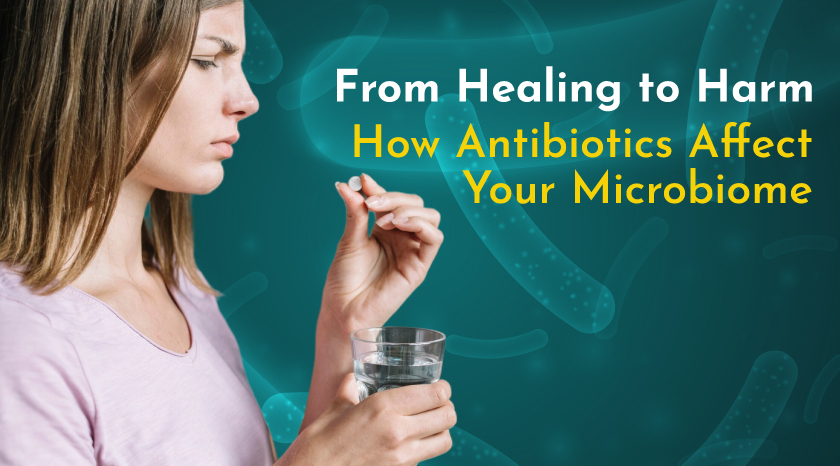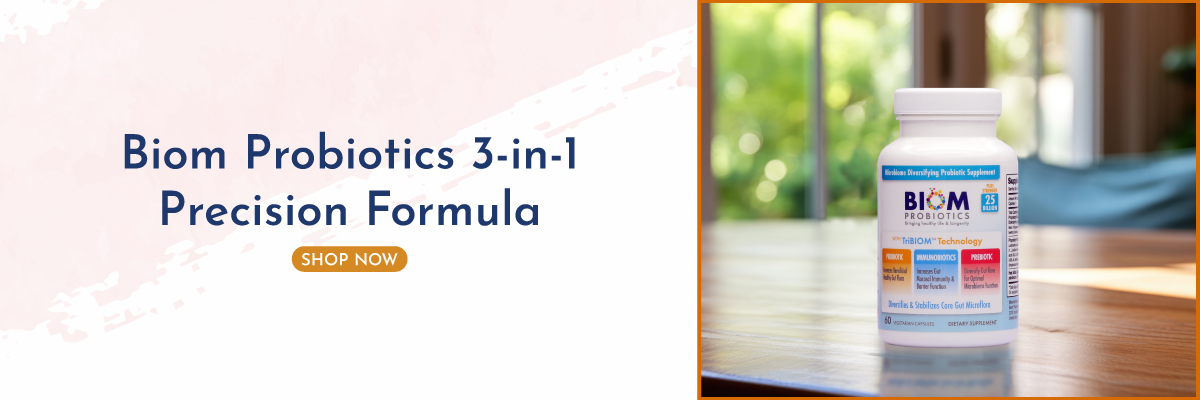Antibiotics have been a cornerstone of modern medicine, offering powerful treatment against bacterial infections and saving countless lives. However, these miracle drugs can also have unintended consequences, particularly on the gut microbiome. Understanding how antibiotics impact your microbiome and what you can do to protect and restore it is essential for maintaining overall health.
The Dual Nature of Antibiotics
Antibiotics are designed to target and kill bacteria that cause infections. They work by interfering with bacterial processes such as cell wall synthesis, protein production, or DNA replication. While effective in eliminating harmful bacteria, antibiotics often do not discriminate, affecting beneficial bacteria as well.
The Microbiome Under Siege
- Disruption of Gut Flora:
- Antibiotics can significantly disrupt the balance of the gut microbiome by killing off beneficial bacteria along with the harmful ones. This disruption, known as dysbiosis, can lead to various health issues.
- Immediate Side Effects:
- Short-term side effects of antibiotic use often include diarrhea, nausea, and stomach cramps. These symptoms arise because antibiotics disturb the natural balance of gut bacteria, impacting digestion and nutrient absorption.
- Long-Term Health Risks:
- Prolonged or repeated antibiotic use can lead to lasting changes in the gut microbiome. Dysbiosis is linked to chronic conditions such as irritable bowel syndrome (IBS), inflammatory bowel disease (IBD), obesity, and even mental health disorders like anxiety and depression.
- Increased Susceptibility to Infections:
- A depleted population of beneficial bacteria can compromise the gut’s defense mechanisms, making it easier for opportunistic pathogens like Clostridium difficile (C. diff) to cause infections. These infections can be severe and challenging to treat.
Strategies to Mitigate Antibiotic Impact
- Probiotic Supplementation:
- Probiotics are live beneficial bacteria that help restore the balance of the gut microbiome. Taking probiotic supplements during and after antibiotic treatment can reduce the risk of antibiotic-associated diarrhea and promote the re-establishment of a healthy microbial community.
- Prebiotics and Fiber-Rich Diet:
- Prebiotics are non-digestible fibers that feed beneficial bacteria. Incorporating prebiotics and a fiber-rich diet supports the growth of healthy gut bacteria, aiding in the recovery of the microbiome post-antibiotic use.
- Responsible Antibiotic Use:
- Use antibiotics only when prescribed by a healthcare professional for bacterial infections. Avoid using them for viral infections like colds and flu, as antibiotics are ineffective against viruses and contribute to antibiotic resistance.
- Stay Hydrated and Eat a Balanced Diet:
- Maintaining hydration and a balanced diet rich in fruits, vegetables, whole grains, and lean proteins supports overall health and aids in the recovery of the gut microbiome.
- Post-Antibiotic Care:
- Continue taking probiotics for several weeks after completing an antibiotic course to ensure the microbiome is fully restored. Consuming fermented foods like yogurt, kefir, sauerkraut, and kimchi can also support gut health.
For a reliable and effective probiotic supplement to support your microbiome during and after antibiotic use, consider BIOM Probiotics 3-in-1, available at BIOM Probiotics. This advanced formula combines probiotics, prebiotics, and postbiotics to provide comprehensive support for your gut health, ensuring you achieve optimal wellness even during antibiotic treatments.





